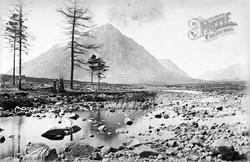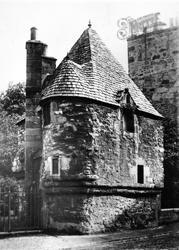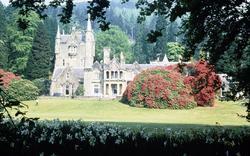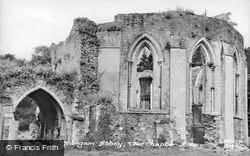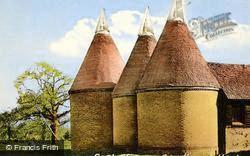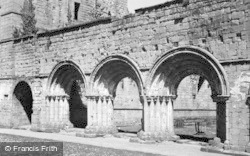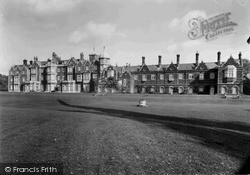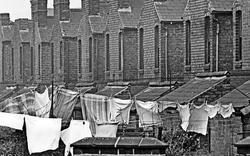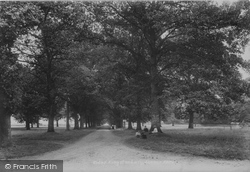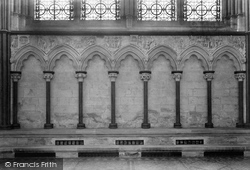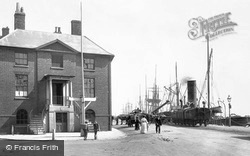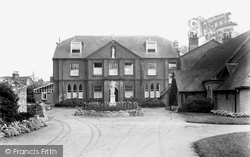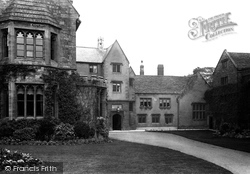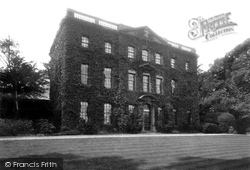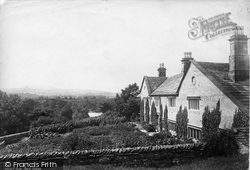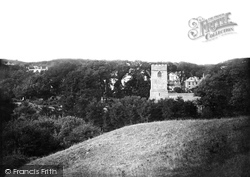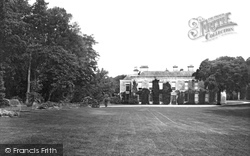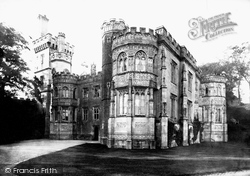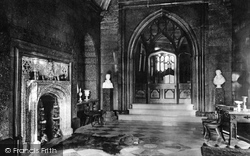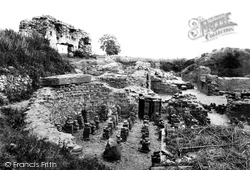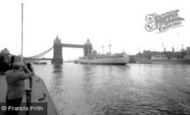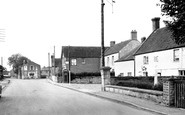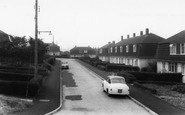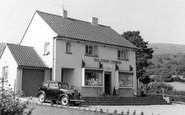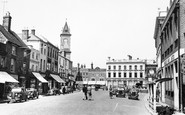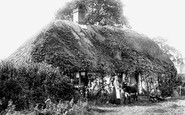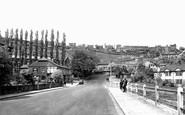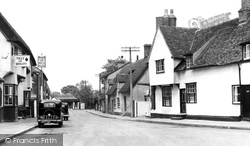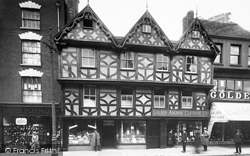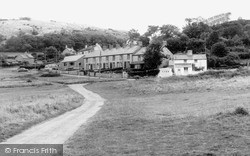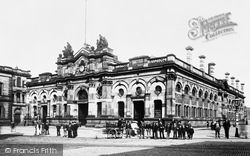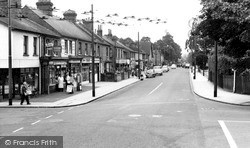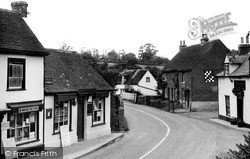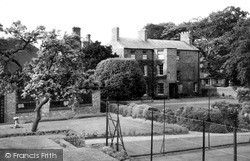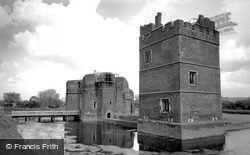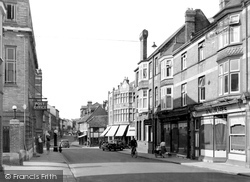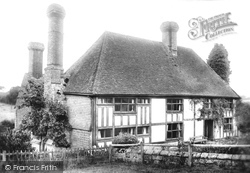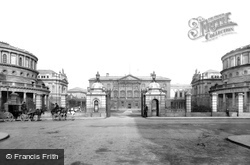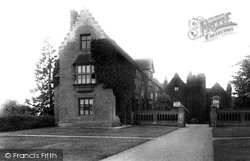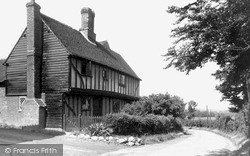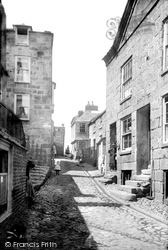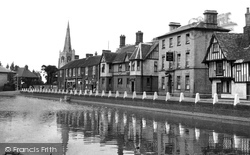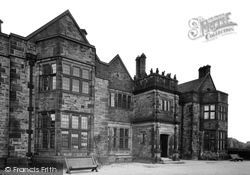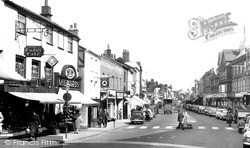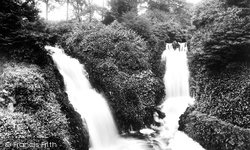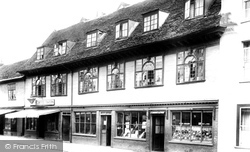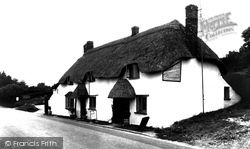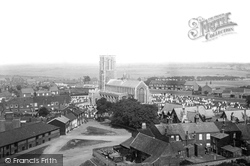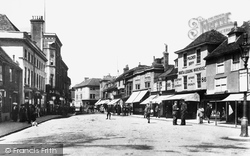Places
36 places found.
Those places high-lighted have photos. All locations may have maps, books and memories.
- Chatsworth House, Derbyshire
- Osborne House, Isle of Wight
- Brambletye House, Sussex
- Ickworth House, Suffolk
- Kingston Lacy House, Dorset
- Boscobel House, Shropshire
- Preshute House, Wiltshire
- Bolton Houses, Lancashire
- Brick Houses, Yorkshire
- Quaking Houses, Durham
- Water Houses, Yorkshire
- Bottom House, Staffordshire
- New House, Kent
- Mite Houses, Cumbria
- Lyneham House, Devon
- Church Houses, Yorkshire
- Dye House, Northumberland
- Spittal Houses, Yorkshire
- Street Houses, Yorkshire
- Tow House, Northumberland
- Halfway House, Shropshire
- Halfway Houses, Kent
- High Houses, Essex
- Flush House, Yorkshire
- White House, Suffolk
- Wood House, Lancashire
- Bank Houses, Lancashire
- Lower House, Cheshire
- Marsh Houses, Lancashire
- Chapel House, Lancashire
- Close House, Durham
- Guard House, Yorkshire
- Hundle Houses, Lincolnshire
- Hundred House, Powys
- Thorley Houses, Hertfordshire
- School House, Dorset
Photos
7,776 photos found. Showing results 1,381 to 1,400.
Maps
370 maps found.
Books
1 books found. Showing results 1,657 to 1.
Memories
10,367 memories found. Showing results 691 to 700.
Thomas Binns 1845 1921 No 1 The Green Later No 3 Grange Cottages
Hello - I would be very grateful for any information - especially photos - of my ancestor Thomas Binns who moved from Cowling to Micklethwaite c. 1898. He had built Carr ...Read more
A memory of Micklethwaite in 1900 by
Will It Be Open?
My family moved from Bermondsey, where we shared my grandad's house, to Enfield, where Mum and Dad had managed to buy their own house (for £2,000) in 1960. It was some years before Dad could afford driving lessons and then a car. We ...Read more
A memory of London in 1966 by
Growing Up In Bradninch
I was born and lived in Bradninch until I went to college when I was 19 in 1969. I was born in the house in Townlands and lived there all the time. After Dad died, Mum moved to Millway Gardens, It was a great place to live ...Read more
A memory of Bradninch by
''the Grapevine'' And Others!
My uncle, the late William John Wilcox, was the proprietor of the 'Grapevine' from the mid 1930s through to the early 1960s. I remember it as a truly old fashioned 'pub' complete with a 'games room' with darts, shove ha'penny ...Read more
A memory of Meare in 1940 by
Bonners Drive Post 1963
I have lived in Bonners Drive since March 1963, it has changed a lot, all the hedges on the left side of photo have been removed, there is also another 4 houses which have been built on that side as well, built in 2010, ...Read more
A memory of Millwey Rise by
The Back House
I was born in Sedgefield and lived in North Bitchburn until I was 7 years old, me and my twin sister Elizabeth and my mam amd dad who worked at the pipe yard. We lived in no 1a Constantine Terrace, it was the back half of ...Read more
A memory of North Bitchburn by
Grandparents Shop
My Grandparents, Joseph and Lilian Stokes, had this property built about 1953, they opened a general stores, the only one for miles around, and also ran the local post office in the shop, a few years later. Many many happy ...Read more
A memory of Compton Bishop by
Pound Street
My first main job on leaving school (Shaw House) was as a tea boy-dogsbody at H C James timber and builders merchants in Pound Street. For quite a while I cycled daily from Highclere Castle, approx 4 miles, it took me just over half an ...Read more
A memory of Newbury in 1956 by
Distant Memories
I had returned to UK from Queensland to visit my mother who was ill and waiting at the platform entrance at Waterloo station when a former colleague from Post Office Overseas Telegraph came up to me and we began a conversation ...Read more
A memory of Frimley Green in 1978 by
Langley 1979 83, Good Old Days
I was at Langley between 1979/83, Mr and Mrs Wright, good people, Mr Trameer and good lady daughter Alex, she'd be 31 year now, I wonder what she's doing. I haven't seen anyone from my day exept Ronnie. I've been to the ...Read more
A memory of Baildon in 1880 by
Your search returned a large number of results. Please try to refine your search further.
Captions
6,977 captions found. Showing results 1,657 to 1,680.
Peering just around the corner of the house on the right is a petrol pump. This might have been quite acceptable in the 1950s perhaps, but not legal now.
Note that on the left-hand side at the top of the house the window is missing. Perhaps reconstruction is going on, or maybe repairs are about to start.
Set below Pen y Corddyn Mawr, a Romano-British hill fort, these houses and cottages are a more recent addition to the ancient landscape of the North Wales coast.
It has always housed many stalls selling a wide assortment of goods.
Bustling School Road has long been lined with shops and houses. There used to be an old forge here, with a shed used for destroying unwanted horses and ponies.
On the opposite side of the road is the Chequers public house. It dates from the 16th century, and was originally the Chequers and Punch Bowl.
The photograph shows the rear of the red brick master's house of c1725, which was originally of two stories until a third was added around 1835, backed by a neat garden and tennis courts.
In fact, the castle is a fortified manor house, carefully set out within a rectangular moat, and the beauty of the remains, which are in the guardianship of English Heritage, resides not so much
The houses on the left-hand side had been rebuilt further back for road widening in 1870.
This half- timbered Wealden Hall House has a late 16th- century sandstone facade at the back.
Leinster House, flanked by the National Library and National Museum. Home of the Irish Parliament since 1922, the building was designed by Richard Cassels in 1745 for the Duke of Leinster.
This graceful manor house, built of brick and with a moat, was originally constructed around 1430 near Moor Farm. Cardinal Wolsey substantially enlarged it in 1520, while he was Lord Chancellor.
The road outside this attractive timber-framed and weatherboarded house has changed little over the years. Note the impressive chimneys, both on the side and in the centre of the building.
This street is now bedecked with flower baskets, but the splendidly cut granite blocks and steps of the houses still survive, as do the cobbles, or 'setts', of the street's surface.
This view shows a picturesque mix of house styles, the timber-framed examples probably dating from the early 17th century, fronting onto a pool, essentially an inlet of the River Ouse.
This shows the bank designed by Archibald Simpson (1839), topped with a statue of Demeter, and a large block of houses by John Smith (c1810), showing Smith's characteristic recessed, curved corner.
The house was designed by the eminent architect, Walter Brierley of York (who also designed Dyke Nook, the home of the Blake family on Whalley Road).
One of Newbury's loveliest streets, Northbrook Street is famous for its mid to late Georgian buildings, and distinctive pink and blue brick houses above lines of modern shop fronts.
Nearby is Gaping Gill, which has an underground chamber large enough to house a cathedral.
The Coffee Tavern came into being around thirty years previously - it was an attempt to provide people with an alternative to nearby public houses.
This is typical of the style of a Dorset village house, with low thatched roof and thatched porches. The sign on the wall offers coffees, accommodation, teas and lunches.
The well-grown tree hides Arndale House and the new Cornhill development, but the ugly Town Hall extension of 1966 (right) is still in clear sight.
While many houses burned down in the fire of 1659, the 15th century church of St. Edmund survived because the churchyard served as a fire break.
The double bow-fronted house has acquired an awning.
Places (80)
Photos (7776)
Memories (10367)
Books (1)
Maps (370)




